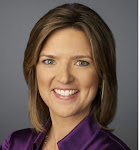Amanpour, CNN Investigate Tibetan Buddhist Struggles, Political Unrest in Myanmar
One-Hour Buddha’s Warriors Documentary Premieres Saturday, Aug. 2, at 8 p.m. (ET/PT)
In Buddha’s Warriors, Amanpour investigates the roots of the conflict between Chinese authority and ethnic Tibetans. Nearly 50 years ago, the Dalai Lama fled Tibet after a failed uprising against communist rule. Tibetans say that all but 13 of 6,000 Buddhist monasteries were destroyed under Chairman Mao’s Cultural Revolution from 1966 to 1976. Those that have been rebuilt are now under the close, watchful eye of the Chinese government. Monks there say that they are forced to denounce the Dalai Lama and swear allegiance to China.
“Whether intentionally or unintentionally, some type of cultural genocide is taking place,” the Dalai Lama tells Amanpour in the documentary. “Present situation is, [the] Tibetan nation [is] actually facing death.”
The Chinese government declined several CNN requests for interviews, but the documentary does include the viewpoints of Chinese people who believe Tibet is rightfully part of China, and comments from a Chinese expert who says the Tibetans are better off under Chinese rule.
In March 2008, tensions reached a boiling point. The Dalai Lama explained his dilemma to Amanpour in a candid interview filmed the week before violent clashes between Tibetan activists and Chinese troops in the Tibetan capital of Lhasa. He advocates a “middle way” – Tibetan autonomy under Chinese rule. Many of his followers, however, have grown impatient for more freedom and want complete independence from China.
Amanpour also interviews some exiled Tibetan activists in India who have led the latest protests for greater freedom and independence. Some say the Dalai Lama’s “middle way” has failed to stop the huge migration of ethnic Chinese into Tibet, stoking the resentment that exploded in the streets of Lhasa. Chinese authorities charge that the violence was instigated by the protestors for political gain. The violence so dismayed the Dalai Lama that he threatened to resign.
In Myanmar, formerly Burma, Buddhist monks are also at the forefront of political unrest. Amanpour meets the leaders of the September 2007 Saffron Revolution, now in hiding in Thailand. Monks marched from their monasteries in protest over high food prices and spreading impoverishment. The Myanmar junta, one of the world’s most brutal military dictatorships, reacted swiftly. Monks and other sympathizers and protestors were arrested and beaten, and some were even killed. A CNN team goes undercover into Burma itself to investigate the aftermath of the revolution. In clandestine interviews, monks vow to continue their fight.
Campbell Brown Investigates Falling Bridges for ‘Roads to Ruin’Schwarzenegger, Bloomberg, Rendell Join Discussion about Need for Immediate Action for Aug. 1 Special

CNN anchor Campbell Brown investigates the nation’s crumbling highways and bridges in a special report “Roads to Ruin: Why America is Falling Apart” airing this Friday, Aug. 1, at 8 p.m. (ET). Guests including New York City Mayor Michael Bloomberg, Pennsylvania Gov. Ed Rendell and California Gov. Arnold Schwarzenegger will discuss immediate steps needed to prevent further tragedy like last summer’s bridge collapse in Minnesota as well as emergency response to the recent California earthquake.



























































































